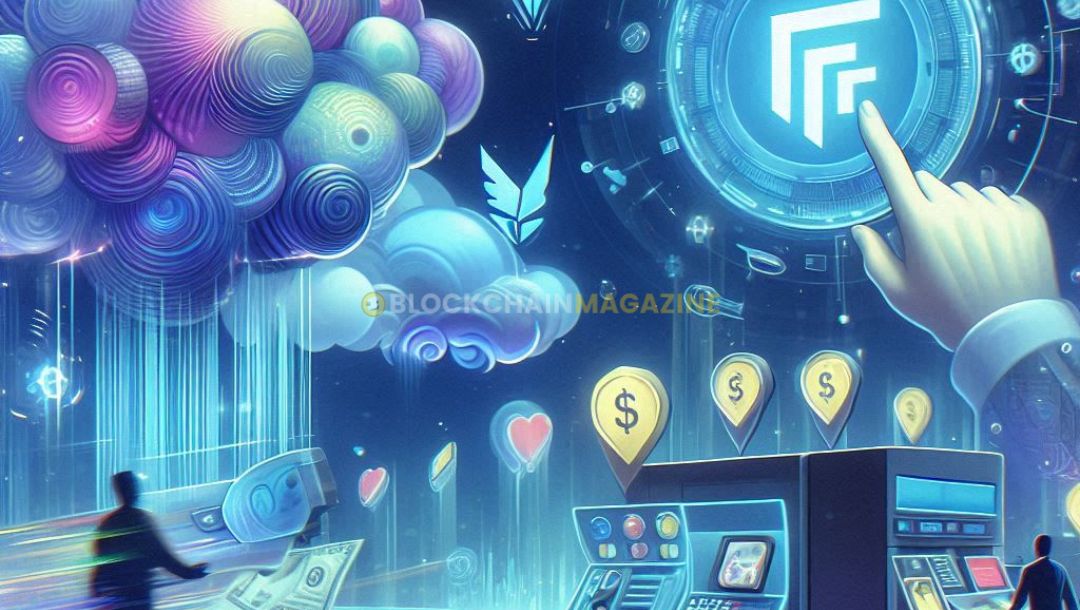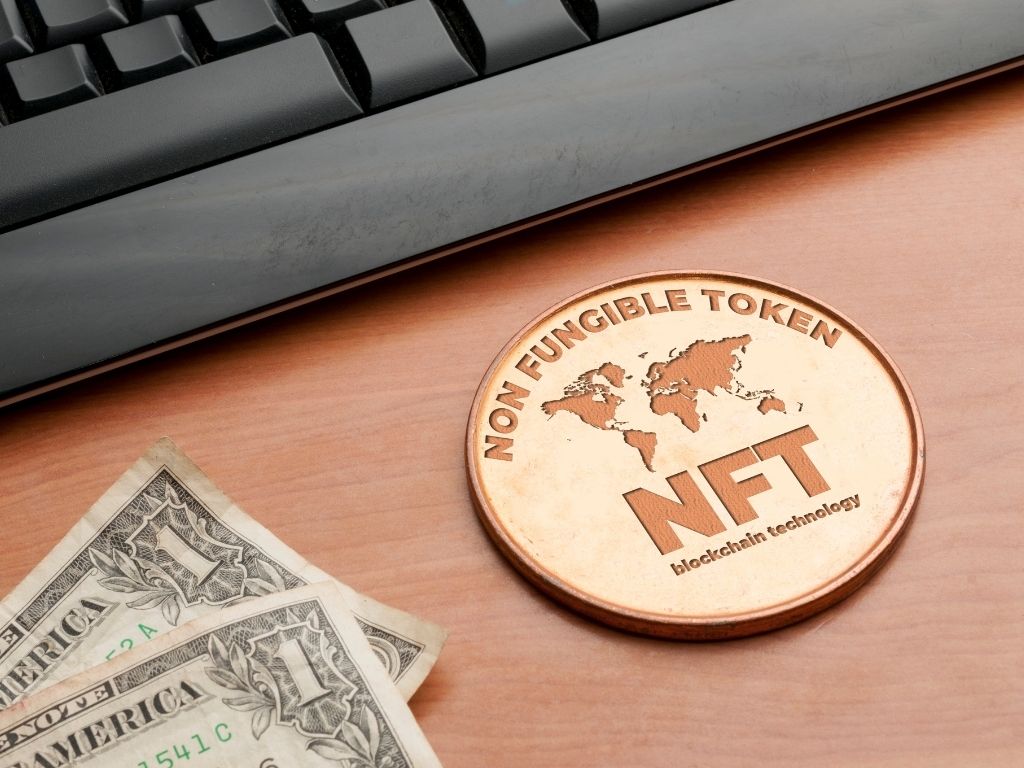Amazing Ways NFTs Are Changing the Future of Film Distribution
NFTs, or non-fungible tokens, are changing how films are made, shared, and enjoyed. They offer new ways for filmmakers to raise money, connect with fans, and make money from their work. This article explores how NFTs are making a big difference in the film industry, from financing to fan engagement.
Key Takeaways
- NFTs allow filmmakers to sell unique digital copies of their films directly to fans.
- They create new ways for fans to connect with movies and filmmakers.
- NFTs can help filmmakers raise money through crowdfunding and community support.
- Digital tickets and merchandise as NFTs offer new revenue opportunities.
- Blockchain technology ensures safe transactions and protects creators’ rights.
The Rise of NFTs in Film Distribution
Understanding NFTs and Their Impact on Film
NFTs, or non-fungible tokens, are unique digital assets that represent ownership of a specific item or piece of content. These tokens are changing how films are distributed. They allow filmmakers to sell their work directly to fans, bypassing traditional distribution channels. This shift not only empowers creators but also gives fans a chance to own a piece of their favorite films.
Early Adopters: Case Studies in NFT Film Distribution
Several filmmakers have already embraced NFTs. For instance, the sci-fi film Zero Contact, starring Anthony Hopkins, was auctioned as an NFT. This innovative approach generated significant revenue and showcased a new model for film distribution. Other projects have also experimented with NFT auctions, offering exclusive content and experiences to fans.
Challenges and Opportunities for Filmmakers
While NFTs present exciting opportunities, they also come with challenges. Filmmakers must navigate the complexities of blockchain technology and market demand. However, the potential for new revenue streams and deeper fan engagement makes exploring NFTs worthwhile. Here are some key points to consider:
- Direct sales to fans can increase profits.
- NFTs can create a sense of community among fans.
- Filmmakers can retain more control over their work.
NFTs represent a new frontier in film distribution, offering both challenges and exciting possibilities for filmmakers and fans alike.
How NFTs Are Revolutionizing Film Financing
Crowdfunding Through NFTs
NFTs are changing how filmmakers raise money. Instead of traditional methods, they can now use crowdfunding through NFTs. This means fans can buy a piece of the film before it’s made. This allows filmmakers to gather funds directly from their audience. Here are some benefits of this approach:
- Direct support from fans
- Building a community around the film
- Potential for higher returns on investment
Investment Opportunities for Fans
Fans can now invest in films through NFTs. This gives them a chance to own a part of the project. When the film does well, they can earn money. For example, with the cinestar token, NFT holders can benefit from significant returns when non-theatrical rights are sold. This creates a win-win situation for both filmmakers and fans.
Case Studies of Successful NFT Film Projects
Several films have successfully used NFTs for financing. Here are a few examples:
- Zero Contact – The first film auctioned as an NFT, starring Anthony Hopkins.
- The Inventor – A project that raised funds through fan engagement.
- Independent Films – Many indie filmmakers are exploring NFTs to fund their projects.
NFTs are not just a trend; they represent a new way for filmmakers to connect with their audience and secure funding.
By using NFTs, filmmakers can create a more sustainable model for financing their projects, ensuring that they have the resources needed to bring their visions to life.
Fan Engagement and Community Building Through NFTs
Creating Exclusive Content for NFT Holders
NFTs allow filmmakers to create exclusive content that only NFT holders can access. This can include behind-the-scenes footage, special interviews, or even unique merchandise. By offering these perks, filmmakers can deepen their connection with fans.
Interactive Experiences and Rewards
Fans can participate in interactive experiences through NFTs. For example:
- Virtual meet-and-greets with cast members.
- Exclusive screenings of films before public release.
- Special rewards for fans who hold certain NFTs, like signed memorabilia.
These activities not only enhance fan engagement but also foster a sense of community among supporters.
Building a Loyal Fanbase with NFTs
NFTs help in building a loyal fanbase by creating a sense of ownership. When fans own a piece of a film, they feel more connected to it. This can lead to:
- Increased word-of-mouth promotion.
- Higher attendance at events.
- A more engaged audience that actively participates in discussions.
NFTs are transforming how fans interact with films, creating a more engaged and supportive community.
In summary, NFTs are not just digital assets; they are tools for filmmakers to engage with their audience in new and exciting ways. By leveraging these opportunities, filmmakers can create a vibrant community around their work, ensuring lasting support and enthusiasm from fans.
NFTs as a New Revenue Stream for Filmmakers
Monetizing Digital Art and Collectibles
NFTs offer filmmakers a unique opportunity to monetize their work. By creating digital collectibles, filmmakers can sell limited editions of their films or related content. This can include:
- Exclusive behind-the-scenes footage
- Digital posters or artwork
- Special director’s cuts of films
These items can be sold as NFTs, allowing filmmakers to earn money directly from their fans.
Royalties and Resale Value
One of the most exciting aspects of NFTs is the potential for ongoing revenue. Filmmakers can earn royalties every time their NFT is resold. For example, if a filmmaker sells an NFT for $1,000 and it later sells for $10,000, they could earn a percentage of that resale. This means:
- Initial Sale: $1,000
- Resale: $10,000
- Filmmaker’s Cut: 10% = $1,000
This creates a continuous income stream, making NFTs a powerful tool for filmmakers.
Comparing Traditional and NFT-Based Revenue Models
| Revenue Model | Traditional Distribution | NFT-Based Distribution |
|---|---|---|
| Initial Earnings | Low (e.g., $0.01/hour) | High (e.g., $1,000 each) |
| Royalties | Limited | Ongoing (10% resale) |
| Control Over Sales | Low | High |
Filmmakers can see that NFTs provide a more profitable and controlled way to earn from their work compared to traditional methods.
NFTs represent a new potential revenue stream for filmmakers, allowing them to connect directly with their audience and earn more from their creative efforts.
Conclusion
In summary, NFTs are changing the way filmmakers can earn money. By leveraging digital art and collectibles, filmmakers can create new revenue streams that were previously unavailable. This shift not only benefits filmmakers but also enhances the fan experience by offering unique content and investment opportunities.
The Future of Film Merchandise and Ticketing with NFTs
NFTs as Collectible Merchandise
NFTs are changing how fans interact with their favorite films. These digital tokens can serve as unique collectibles that fans can own and trade. Unlike traditional merchandise, NFTs offer:
- Authenticity: Each NFT is verified on the blockchain, ensuring it’s one-of-a-kind.
- Ownership: Fans can truly own a piece of their favorite film.
- Resale Value: NFTs can appreciate in value, making them a potential investment.
Transforming Movie Tickets into NFTs
Movie tickets are also evolving into NFTs. This means:
- Digital Storage: Tickets are stored in a digital wallet, making them easy to access.
- Souvenir Value: After an event, the ticket remains in the wallet as a collectible.
- Fraud Protection: Blockchain technology helps prevent fake tickets.
Benefits of NFT Ticketing for Event Organizers
Event organizers can benefit greatly from NFT ticketing. Some advantages include:
- Cost Savings: Reduces the need for physical ticket production.
- New Revenue Streams: Organizers can earn from secondary sales.
- Enhanced Fan Engagement: Fans feel more connected to the event through unique digital assets.
NFT technology is reshaping how fans experience films and events. By turning tickets into collectibles, it creates a deeper connection between fans and the films they love.
In summary, the future of film merchandise and ticketing is bright with NFTs, offering new ways for fans to engage and for filmmakers to monetize their work.
Blockchain Technology and Its Role in Film Distribution
Eliminating Intermediaries in Film Distribution
Blockchain technology is changing how films are made and shared. By removing middlemen, filmmakers can connect directly with their audience. This means that creators can share their work without needing agents or distributors. For example, platforms like SingularDTV and FilmChain allow filmmakers to upload their films directly, making it easier for fans to access and support their work.
Ensuring Intellectual Property Protection
One big worry for filmmakers is protecting their ideas. Blockchain helps by keeping a secure record of who owns what. This means that once a film is registered on the blockchain, it can’t be changed or stolen. Filmmakers can use smart contracts to manage how their work is shared and ensure they get paid fairly. This is crucial in a world where piracy is a major issue.
Decentralized Platforms for Content Distribution
Decentralized platforms are changing the game for film distribution. These platforms allow filmmakers to sell their work directly to fans, which can lead to better profits. Here are some benefits of using decentralized platforms:
- Direct sales: Filmmakers can sell their films without middlemen.
- Fairer payments: Artists receive a larger share of the profits.
- Global reach: Films can be accessed by audiences worldwide.
Blockchain technology is making the film industry more accessible and fair for creators and fans alike.
In summary, blockchain is not just a buzzword; it’s a powerful tool that is reshaping the film industry by providing new ways to distribute content, protect intellectual property, and engage with audiences directly.
Case Studies of NFT Success in the Film Industry
Hollywood’s Adoption of NFTs
Hollywood is starting to embrace NFTs, with films like Zero Contact, starring Anthony Hopkins, leading the way. This film was auctioned as an NFT on the Vuele platform, marking a significant shift in how films can be distributed. This innovative approach allows filmmakers to earn substantial income upfront.
Independent Filmmakers and NFT Success Stories
Independent filmmakers are also finding success with NFTs. For instance, some have sold limited edition digital copies of their films directly to fans, creating a new way to connect with audiences. Here are a few notable examples:
- Anthony Hopkins’ Zero Contact: First film auctioned as an NFT.
- NFTs for In the Mood for Love: Auctions of unreleased footage.
- Bollywood’s 83: Fans can own a piece of cricket history through NFTs.
Lessons Learned from Early NFT Film Projects
From these early projects, several lessons can be drawn:
- Direct engagement with fans can lead to higher sales.
- NFTs can create a sense of ownership and community among fans.
- Filmmakers can explore new revenue streams beyond traditional methods.
NFTs are not just a trend; they represent a new way for filmmakers to connect with their audience and generate income.
In conclusion, the success of NFTs in the film industry is paving the way for a future where filmmakers have more control over their work and can engage with fans in exciting new ways. The potential for growth in this area is immense, and it will be interesting to see how it evolves.
Conclusion
In summary, NFTs are reshaping how films are made and shared. They give filmmakers new ways to connect with fans and earn money. By allowing direct sales and unique ownership, NFTs create a fresh experience for movie lovers. This change could lead to a future where filmmakers have more control over their work and can build stronger relationships with their audience. As this technology grows, it will be exciting to see how it continues to change the film industry.
Frequently Asked Questions
What are NFTs and how do they relate to films?
NFTs, or Non-Fungible Tokens, are unique digital items that represent ownership of a specific piece of content, like a film. They allow filmmakers to sell their work directly to fans.
How can filmmakers use NFTs to raise money?
Filmmakers can use NFTs to gather funds by selling unique digital copies of their films or related content. This method can attract fans who want to support their projects.
What benefits do NFTs provide for fans?
Fans can own a special piece of their favorite films through NFTs. This ownership can come with perks like exclusive content, early access, or even experiences related to the film.
Are there any risks involved in buying NFTs?
Yes, buying NFTs can be risky. The value of NFTs can change a lot, and there’s no guarantee that they will appreciate over time.
How do NFTs change the way films are distributed?
NFTs allow filmmakers to skip traditional distribution methods. They can sell directly to fans, which can lead to more profit and better engagement.
What does the future hold for NFTs in the film industry?
As technology evolves, NFTs may become a standard part of film distribution, financing, and fan engagement, offering new opportunities for both filmmakers and audiences.
Stay informed with daily updates from Blockchain Magazine on Google News. Click here to follow us and mark as favorite: [Blockchain Magazine on Google News].
Get Blockchain Insights In Inbox
Stay ahead of the curve with expert analysis and market updates.
latest from tech
Disclaimer: Any post shared by a third-party agency are sponsored and Blockchain Magazine has no views on any such posts. The views and opinions expressed in this post are those of the clients and do not necessarily reflect the official policy or position of Blockchain Magazine. The information provided in this post is for informational purposes only and should not be considered as financial, investment, or professional advice. Blockchain Magazine does not endorse or promote any specific products, services, or companies mentioned in this posts. Readers are encouraged to conduct their own research and consult with a qualified professional before making any financial decisions. The featured image used is just a creative depiction of the title and it does not intend to hurt sentiments of any person or institution. If it hurts anyone sentiments, please do not hesitate to reach out to Blockchain Magazine.

 Bitcoin
Bitcoin  Ethereum
Ethereum  XRP
XRP  Tether
Tether  Solana
Solana  USDC
USDC  Dogecoin
Dogecoin  Cardano
Cardano  Lido Staked Ether
Lido Staked Ether  TRON
TRON  Wrapped Bitcoin
Wrapped Bitcoin  Chainlink
Chainlink  Sui
Sui  Wrapped stETH
Wrapped stETH  Avalanche
Avalanche  Stellar
Stellar  Hedera
Hedera  Toncoin
Toncoin  Shiba Inu
Shiba Inu  LEO Token
LEO Token  Hyperliquid
Hyperliquid  Bitget Token
Bitget Token  Litecoin
Litecoin  WETH
WETH  USDS
USDS  Polkadot
Polkadot  Bitcoin Cash
Bitcoin Cash  Ethena USDe
Ethena USDe  MANTRA
MANTRA  Wrapped eETH
Wrapped eETH  Uniswap
Uniswap  Ondo
Ondo  Pepe
Pepe  Monero
Monero  WhiteBIT Coin
WhiteBIT Coin  Aave
Aave  NEAR Protocol
NEAR Protocol  Mantle
Mantle  Aptos
Aptos  Dai
Dai  Official Trump
Official Trump  Internet Computer
Internet Computer  Ethereum Classic
Ethereum Classic  Bittensor
Bittensor  Cronos
Cronos  OKB
OKB  POL (ex-MATIC)
POL (ex-MATIC)  Gate
Gate 




